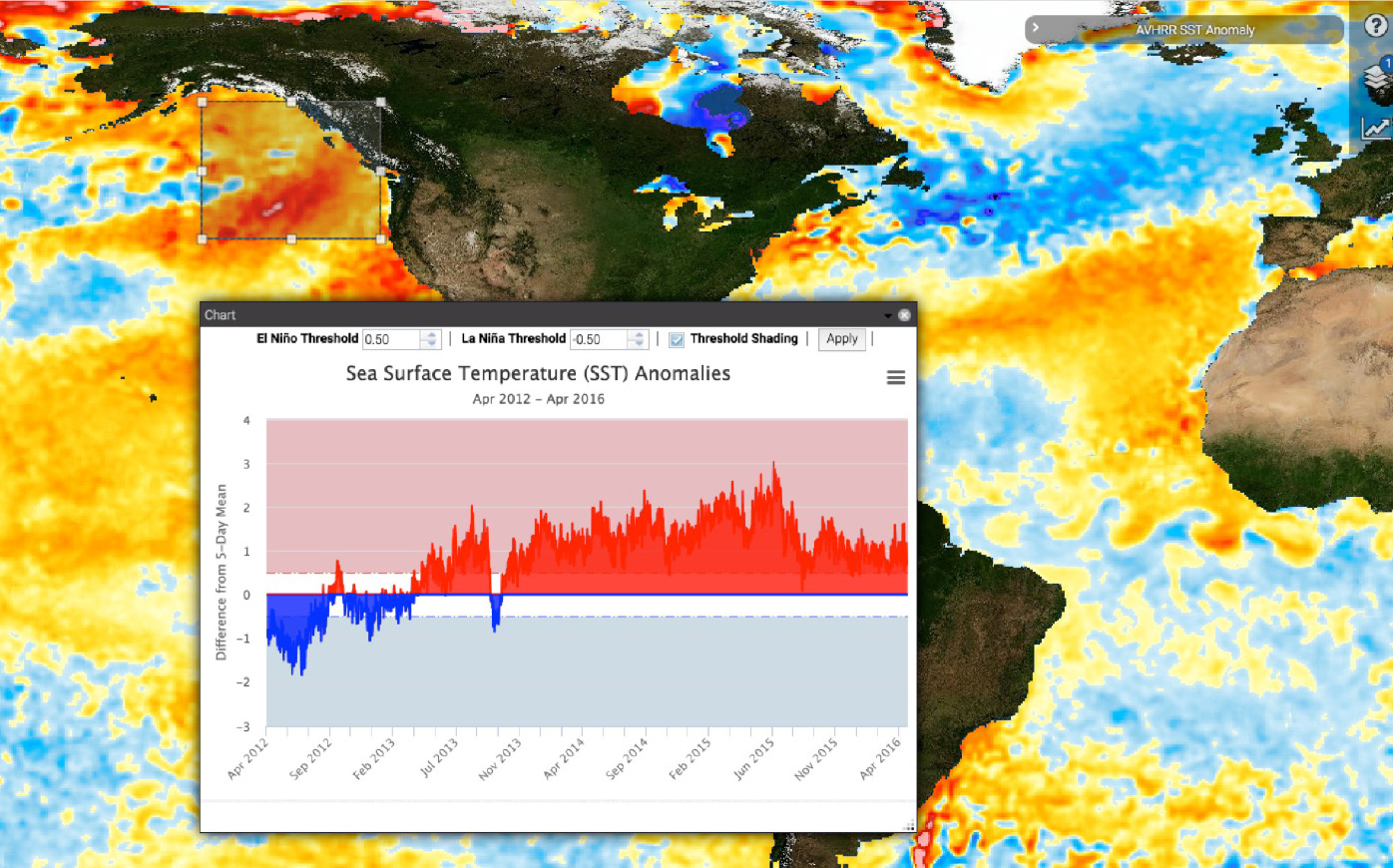OceanWorks: Speeding Up Ocean Science
As the Surface Water and Ocean Topography (SWOT) mission progressed to eventual launch in 2022, researchers realized that manual data manipulation approaches would be infeasible with greatly expanded data volumes. At the time it was estimated that SWOT could generate over 20 Petabytes during a nominal three-year mission.
OceanWorks, an open-source, big-data platform developed under the Advanced Information System Technologies (AIST) program was infused into NASA’s Physical Oceanography Distributed Active Archive Center (PO.DAAC) in 2019, ahead of the SWOT mission. The science platform streamlined many data gathering and analysis functions; in some cases, tasks that previously took weeks-to-months to accomplish were reduced to less than an hour.

An early example of OceanWorks’ web-based analysis capability (from the OceanXtremes project), this image shows “The Blob” – the large mass of relatively warm water in the Pacific Ocean off the coast of North America from 2013-2015.
A collaborative effort between the Jet Propulsion Laboratory, Florida State University, NCAR, and George Mason University, OceanWorks provided a new environment for conducting ocean science investigations, including on-the-fly multi-variable analysis for major ocean parameters. And as a web-accessible service, OceanWorks enabled direct analysis of the PO.DAAC archive, including subsets, without having to move the data.
OceanWorks was built upon three prior AIST investments, all awarded in 2014:
• OceanXtremes: Oceanographic Data-Intensive Anomaly Detection and Analysis Portal (Thomas Huang, Jet Propulsion Laboratory)
• DOMS: Distributed Oceanographic Matchup Service (Shawn Smith, Florida State University)
• MUDROD: Mining and Utilizing Dataset Relevancy from Oceanographic Data (Chaowei Yang, George Mason University)